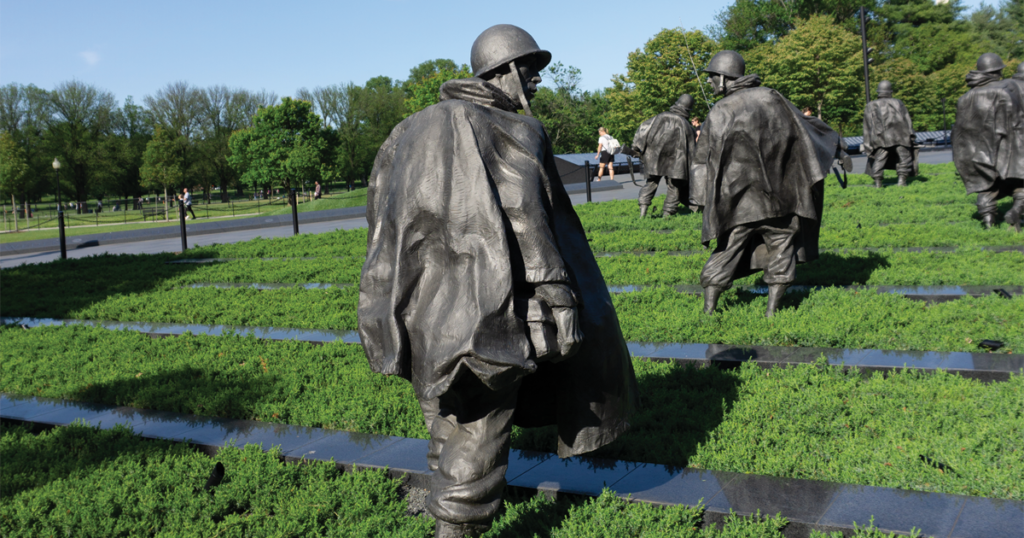Holiness: Consecration, Surrender and Freedom
"Anything that counts as true freedom is from the Holy Lamb of God who consecrated Himself so that you and I can live surrendered in the freeing power of a love that is pure and selfless."
My wife Diane and I recently walked around the National Mall in Washington, D.C. We thoughtfully and gratefully passed names and symbols of three major wars. The truth of the engraved epitaph, “Freedom is not free,” took on convicting depth as the seemingly endless lists of the fallen extended before us. I have often thought about the freedom I have as an American. Often my mom would turn to me in a travel line and say, “You will never know the price paid for your passport.” She was pointing to the consecration someone willingly made for my ability to travel virtually anywhere. Someone unknown to me made every step possible. At the base of everything we consider freedom there must be someone who has committed themselves to die for our liberty. Someone did not surrender to tyranny so that I might not have to. These reflections have immense implications for the holiness God intends for every believer.
In the Bible, freedom from all sin requires the consecration of another. Our deepest needs are met by the loving, purposeful consecration of our Triune God (John 17:11-12, 15-17). The Holy One wants our freedom more than we do, but He has to show us the cost for that release. Every lamb slaughtered pointed to the Lamb who was slain from the foundation of the world (Revelation 13:8). Jesus willingly shed His blood so that we might be free from all sin, even at the subconscious level, to be holy (Hebrews 13:12; Hebrews 9:14; I John 1:7).
We tend to put emphasis on our surrender when it comes to being made holy. Surrender is primarily focused on what we bring to the table. To surrender is to give up oneself, to become vulnerable, to acknowledge that one has been defeated, to act in a way that holds no pride or self-determination. This unreserved yielding has to do with our will, an acknowledgment of our need of the Lord. Of course, nothing we do that is saving is done in our power alone. All surrender is enabled by the Holy Spirit. My point here is that we tend to forget who is actually paying the price for every freedom we may experience. It is someone else’s consecration that makes my surrender meaningful.
Consecration is different from surrender. Surrender might be viewed as a general category of self-giving while consecration is a particular kind of “setting apart.” It is more specifically focused on holiness. In the Old Testament the word we translate as “consecrate” is often “to make holy” or “to sanctify.” To consecrate is to place oneself in a context where our Holy One has full access to all that He desires to reform, to re-make in His image. Our referring to being “set apart” comes from the same idea as to consecrate ourselves to God, or to be consecrated by Him (Joshua 7:13; 2 Corinthians 6:17). Jesus didn’t merely surrender. He consecrated Himself, freely gave up His life, so that the tyranny of sin was defeated and we can walk freely in the Spirit.
As I left the memorial of the Korean War, I thought, “My stroll here is enabled by those who consecrated themselves to keep freedom available to me.” I also must commit all that I am for someone else’s freedom. But behind it all, anything that counts as true freedom is from the Holy Lamb of God who consecrated Himself so that you and I can live surrendered in the freeing power of a love that is pure and selfless.







